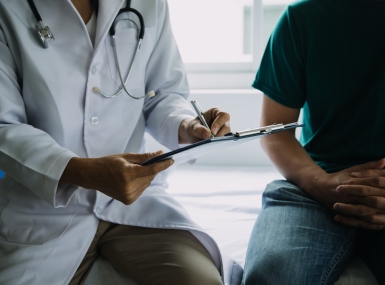Leveraging NACo’s behavioral health and justice initiatives
Of the 11 million admissions to county and other local jails each year, an estimated two million of them involve a person with a serious mental illness. Nearly three quarters of people with serious mental illness such as bipolar disorder, major depression or schizophrenia who are arrested and detained in jail also have a co-occurring substance use disorder.
Ensuring that these individuals have access to appropriate and quality health care while they are detained and are connected to treatment and services immediately upon release from jail is key to their recovery and to keeping them from returning to jail.
Counties across the country are building innovative partnerships and policies to ensure that people with behavioral health treatment and other medical needs are receiving it before, during and after a jail stay. Not only do these partnerships result in positive outcomes for individuals served, but they support efficient use of scarce county resources.
NACo has several initiatives to support this work happening locally that all counties are welcome and encouraged to join and leverage as they continue their own efforts to support their residents.
Stepping Up
More than 500 counties have committed to implementing innovative policies, practices and programs to reduce the number of people with mental illnesses and co-occurring substance use disorders in jails through the national Stepping Up initiative.
Stepping Up is a partnership between NACo, the Council of State Governments Justice Center and the American Psychiatric Association Foundation that provides counties with a framework for strategic planning and collaboration across local behavioral health and justice agencies. From training law enforcement officers and providing crisis services to helping people get connected to treatment and housing upon release from jail, Stepping Up counties are reducing their jail populations and improving the way they interact with their most vulnerable residents. Find out more at www.NACo.org/SteppingUp.
Data-Driven Justice
In addition, 96 counties engage in Data-Driven Justice (DDJ), a project of NACo and Arnold Ventures that supports jurisdictions in their efforts to share data and information to better align local resources to respond to people experiencing a behavioral health crisis. In any given community, a small number of individuals cycle through health, human services and justice systems, including homelessness services, hospitals and jails. Counties are using this project to create partnerships to share data so they can identify these “frequent utilizers” and collaborate to provide better services and supports to these individuals to help in their recovery and long-term success.
From navigating HIPAA and building technology platforms to pairing law enforcement officers with mental health clinicians, DDJ communities are collaborating to improve outcomes for people in crisis. Find out more at www.NACo.org/DataDrivenJustice.
Attachments
Related News

Congress introduces Second Chance Act reauthorization
On April 16, the Second Chance Reauthorization Act of 2024 (H.R. 8028) was introduced in the U.S. House of Representatives with robust bipartisan support. NACo supports this legislation, which would reauthorize funding for Second Chance Act (P.L. 110-199) programs for five years.

HRSA offers funds to aid care transitions for justice-involved individuals
On April 10, the U.S. Department of Health and Human Services’ Health Resources and Services Administration (HRSA) announced the availability of $51 million in funding opportunities open to HRSA-funded health centers. HRSA-funded health centers, which serve over 30 million patients, play a crucial role in county healthcare systems emphasizing equity and accessibility in healthcare. This new initiative focuses on supporting individuals leaving incarceration by providing health services during the critical 90 days before release, assisting justice-impacted individuals with their return to the community by expanding access to primary healthcare—including mental health and substance use disorder treatment.

DHS announces $1.8 billion in preparedness grants to advance county security and resilience
On April 16, the U.S. Department of Homeland Security (DHS) unveiled more than $1.8 billion in funding for eight preparedness grant programs in Fiscal Year (FY) 2024. These grants play a crucial role in helping county governments bolster their readiness and response capabilities against terrorism and disasters.
